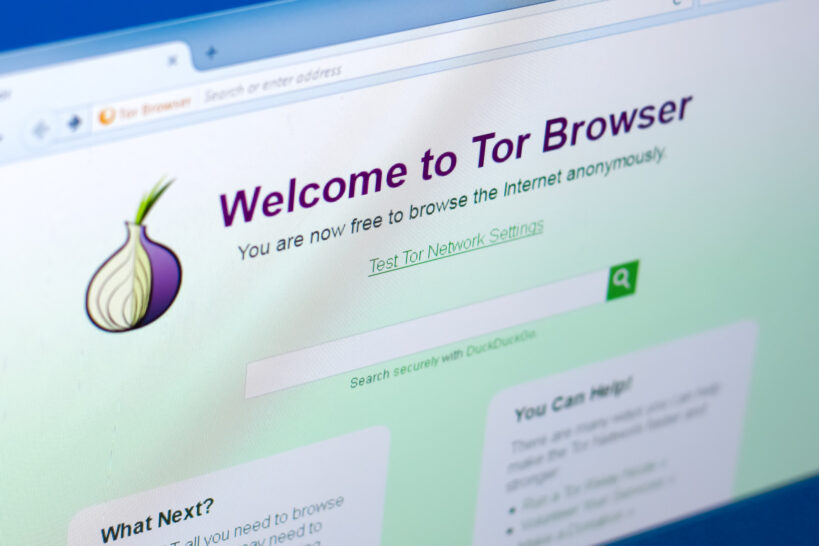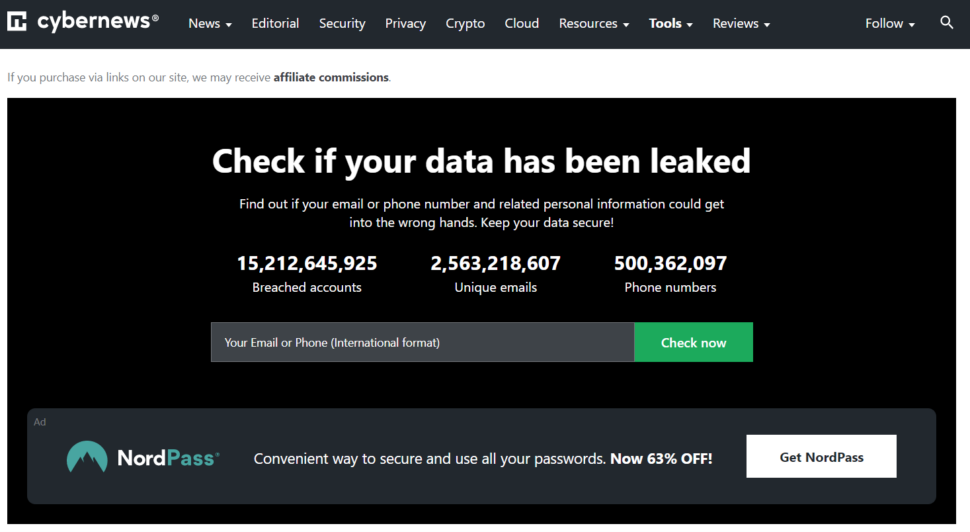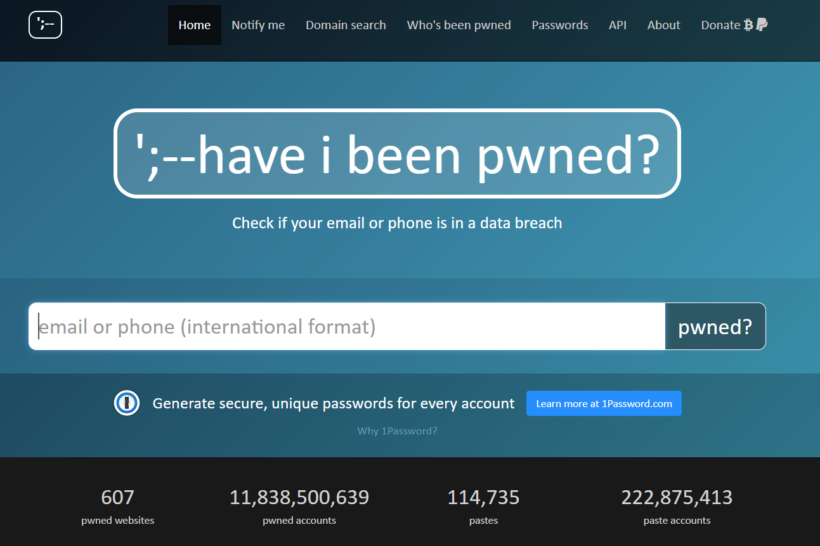3 tricks to see if your passwords are being sold on the Dark Web

Hackers can make a ton of money by selling your private information on underground forums. It’s possible that your passwords are being sold on the Dark Web right now. That’s why you should run a cybersecurity check now and then.
Sadly, no amount of prevention can save you from a security breach. Hackers could breach a company you have an account with, exposing millions of private records. Tap or click here for a survival guide to follow after hackers compromise your data.
First, though, you’ll want to confirm whether or not you’re in danger. That’s where this helpful guide comes in. Follow this three-step strategy to make sure you’re safe.
Are your passwords being sold? Here’s how to find out
Luckily, there are a lot of free resources in your toolkit. These can help if you’re Googling, “Find out if my password has been compromised” or “How to find out if my password was stolen.”
Hunting down stolen information can be difficult. You need to take a few extra steps to access the Dark Web. For example, you might need a Tor browser, which reroutes your internet traffic for maximum privacy.

The Dark Web is full of non-indexed websites. In other words, standard search engines can’t find them, so they won’t appear in typical search results. Most of us spend our time on the surface web, which refers to websites you can discover through standard search engines.
Let’s start with a helpful resource that can store your passwords and keep you safe.
1. Password managers
Password managers are a database for your important accounts. Kim says you should create strong, original, hard-to-guess passwords for all your accounts. Tap or click here for a few ways to craft an impenetrable password.
There’s just one complication. When you create a new password for every account, it can be hard to remember them all. Password managers are a handy place to store unique account credentials. They have all your passwords in one place.
But these programs are more than simple storage spaces. Some password managers can even monitor the Dark Web. They can alert you to take action and protect your organization.
In addition to password managers, you can check out tools that search the Dark Web for you. This way, you don’t have to download a Tor Browser and do your own digging. You can also check out this list of 10 free Dark Web scanners that still work in 2022.
2. This website helps discover if your passwords are being sold
If you think hackers stole your password, check out CyberNews checker. It’s the most extensive data leak checker available. You need an email address to use it.
Tap or click here to see how this tool can help you. Or you can stay here for some quick tips. Enter it into this search tool and it will see if any recent breaches revealed your email address:

Security breaches can expose different data points. Hackers can collect the data points from separate breaches and connect them. Thus, they build a profile of you.
That’s why systems like CyberNews checker are so helpful. Here, you can see which breaches exposed your data. And since this is the most extensive data leak checker you can use, it’s a great place to start.
3. You can also head to HaveIBeenPwned
Here’s another great way to see if your passwords have been stolen. This security breach tracker has been around for a while.
Enter your email address into this online database. Then, it reveals which data breaches involve your data.

HaveIBeenPwned covers over 12 billion stolen records. Protect yourself by checking to see if your data was “pwned.” Sites like this help you arm yourself with knowledge.
Once you know a data breach hurt you, you can start mitigating the damage. But you can’t do that if you don’t know you’re in danger. Tap or click here to see if your information has been exposed.
Protect your digital life
You can’t stop hackers from breaching your bank. So if a security breach hits your financial institution, you should change your passwords. But hackers can get your secrets from more than just data breaches.
Cybercriminals will often hit you with complex phishing scams. They’ll say something like, “Click this link for a discount.” It’s easy to click on a misleading link — only to download malware onto your device.
A single misclick can compromise your passwords. That’s why you need a strong antivirus program on your side. We recommend our sponsor, TotalAV.
Right now, get an annual plan of TotalAV Internet Security for only $19 at ProtectWithKim.com. That’s over 85% off the regular price!
Tags: addresses, antivirus, breaches, company, Credentials, cybercriminals, cybersecurity, Dark Web, data, database, device, digital, download, email, guide, hackers, HaveIBeenPwned, internet, malware, money, online, organization, password managers, passwords, phishing, privacy, programs, scams/scammers, search results, security, selling, storage, Tor, tricks

